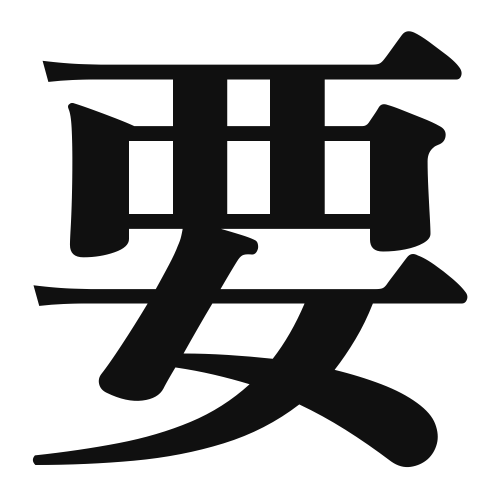1. Overview of Meaning
The kanji “要” (yō) means “to need” or “to require.” It conveys the idea of something that is essential or necessary in a given context.
2. Formation and Radical
Formation of the Kanji: The kanji “要” is a phonetic-ideographic character (形声文字). It combines the meaning of “to need” with a phonetic component that suggests its pronunciation.
Radical: The radical for “要” is “要” itself, which is often associated with the concept of necessity or importance.
3. Examples of Usage
Common Words and Phrases: Some frequently used words that include “要” are:
- 必要 (hitsuyō) – necessity
- 要件 (yōken) – requirement
- 要望 (yōbō) – request
Example Sentences in Daily Conversation:
- この仕事には特別なスキルが要ります。 (Kono shigoto ni wa tokubetsu na sukiru ga irimasu.) – This job requires special skills.
- あなたの意見が要です。 (Anata no iken ga yō desu.) – Your opinion is essential.
4. Synonyms and Antonyms
Similar Kanji: A similar kanji is “必要” (hitsuyō), which also means “necessary,” but it emphasizes the state of being needed rather than the action of needing.
Antonyms: An antonym of “要” is “無用” (muyō), which means “useless” or “unnecessary.”
5. Cultural and Historical Background
Relation to Japanese Culture: The concept of necessity is deeply rooted in Japanese culture, where harmony and balance are often prioritized. Understanding what is “要” can reflect one’s values and priorities.
Proverbs and Idioms: One relevant proverb is “要らぬお世話” (iranu osewa), which means “unnecessary help,” highlighting the idea that sometimes, what is not needed can be just as important as what is.
